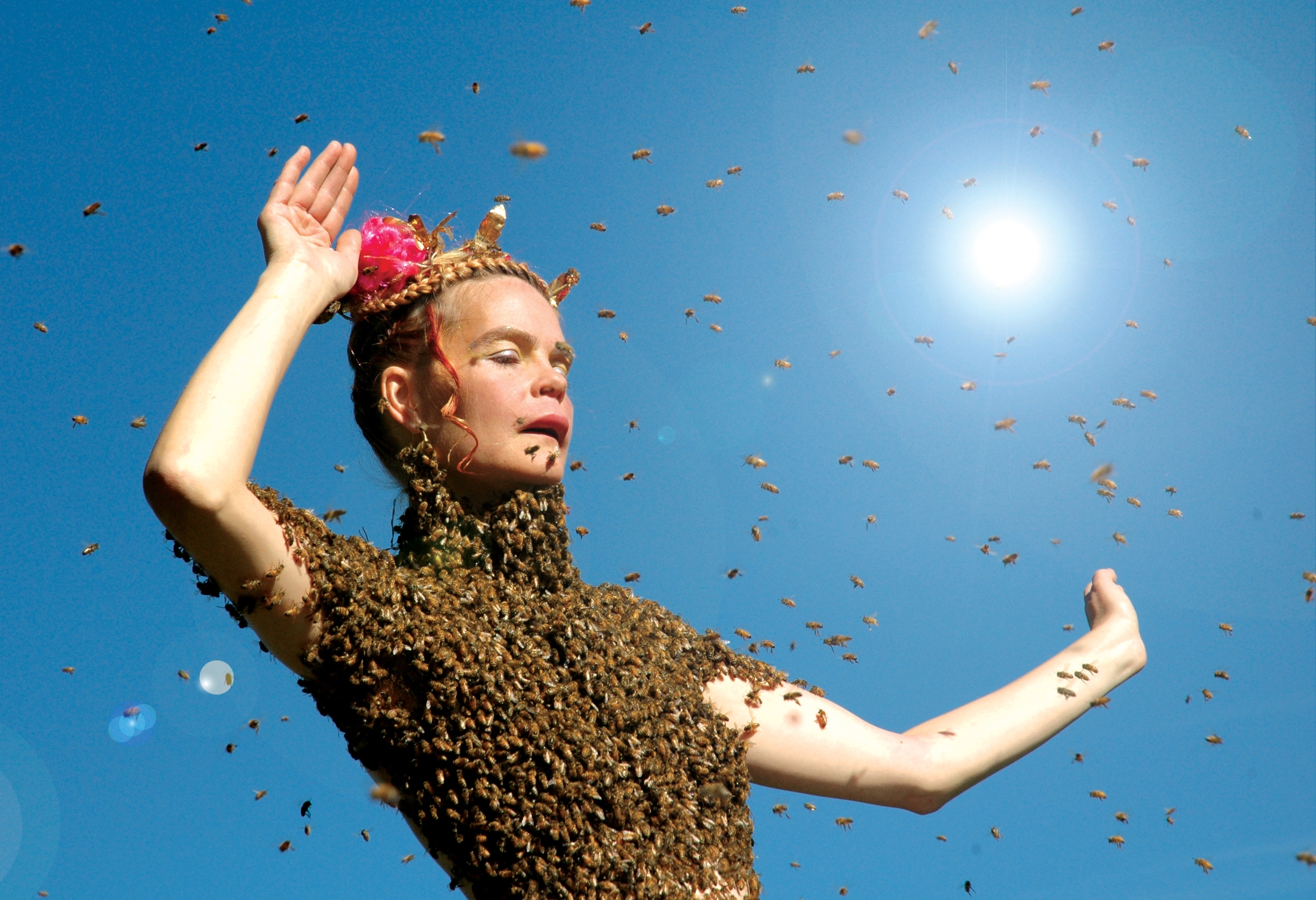Showing posts with label bees. Show all posts
Showing posts with label bees. Show all posts
Tuesday, April 1, 2014
Documentary: Queen of the Sun
http://www.queenofthesun.com
This is a great documentary about the disappearance of bees around the world. Many bee keepers are interviewed, and causes and solutions are suggested. Also simply enjoyable to watch!
It is at the flaxman to check out (DVD 6048) I highly recommend it!
Anna MH
Sunday, February 2, 2014
Kingdom-jumping Virus Linked to Colony Collapse in Bees
As we well know, the biological world is more complex than can be imagined, and mysteries abound.
Scientists continue to make sense of the dramatic appearance of the Colony Collapse Disorder phenomena several years back.
Back in 2010, it seemed a unique combination of fungus and virus was the culprit. seemed to be the culprit. Then recently popular pesticides called neonicotinoids were implicated in bee deaths, leading to great controversy as to whether these pesticides should be banned, at least in the short term to help investigate their effects.
Now: reports out say yet another virus has been found to be involved. What is novel about this one is the suggestion that it is a plant virus that has jumped to become infectious and damaging to bees.
Of course the larger question is: What is it about modern industrial agriculutural practices (the treatment of crops and system of honeybee crowding and circulation) that might give rise or exacerbate the prevalence of bee pathogens and colony collapse. Also with considering is the general environmental stresses the bees face in their pollinating lives, such as the effect of pollution of sense of smell.
AY
Thursday, January 23, 2014
Insect Birth Control
A brief report in the New York Times discusses the discovery of something that biologists knew was there and at work in social insects colonies, but had never conclusively identified - the fertility-suppressing pheromone that queens give off to keep the other workers in the colony sterile, and thus non-reproductive. Yes, this handy pheromone keeps the ovaries of other ants or bees from properly developing.
Cooperation in the superorganism/colony isn't just by simple consent, but rather a negotiation of a variety of priorities and sometimes competing interests - at least from the point of view of natural selection...
AY
Thursday, January 12, 2012
30 wasps destroy 30,000 strong bee colony
the 30 wasps work together to take down this larger colony.
-jay
Tuesday, November 29, 2011
"Traveling Salesman"

Once again StumbleUpon has lead me to an interesting article on insects.
This particular one is discussing some of the problem solving skills associated with hymenoptera–specifically Bumblebees.
The test was set up to determine if the bees could "find the shortest route between cities" (here as faux-flowers). Two researchers, Laura Chittka and Mathieu Lihoreau assessed how the bees would respond to the flowers: seeing "whether the bees would go after the flowers in the order in which they were discovered, or if they would figure out the shortest route among all the flowers even as new ones were added"
Ultimately they found that however the simulated field was manipulated, the Bumblebees consistently determined and followed the shortest path.
The article itself is not that long, it's definitely worth checking out.
-DiAnna P.
Monday, November 21, 2011
Tuesday, October 25, 2011
Two New Bee Species Found

"Two New Bee Species Are Mysterious Pieces in the Panama Puzzle"
"ScienceDaily (Oct. 18, 2011) — Smithsonian scientists have discovered two new, closely related bee species: one from Coiba Island in Panama and another from northern Colombia. Both descended from of a group of stingless bees that originated in the Amazon and moved into Central America, the ancestors of Mayan honeybees. The presence of one of these new species on Coiba and Rancheria Islands, and its absence from the nearby mainland, is a mystery that will ultimately shed light on Panama's history and abundant biodiversity..."
Cited: Smithsonian Tropical Research Institute (2011, October 18). Two new bee species are mysterious pieces in the Panama puzzle. ScienceDaily. Retrieved October 25, 2011, from http://www.sciencedaily.com /releases/2011/10/111018155223.htm
Click here for the link to read the fill story: http://www.sciencedaily.com/releases/2011/10/111018155223.htm
This relates to our current topic about insect migration from mainland to island. And also sheds light on a debate about the age of the connection between North and South America due to the discovery that 17 million years ago the bees had already been established in Central America.
-EI
Sunday, March 6, 2011
Springtime! (in North Carolina...)
In North Carolina pollination season has already started!
A picture of a bee enjoying honeysuckle at the Raulston Arboretum that I visited this past weekend....
Wednesday, October 27, 2010
bee brainz
This is a recently published article about how bees use advanced math to determine the shortest path from food source to food source. I posted it because it reminded me of what we learned about how ants use trigonmetry to find their way back to their nest. Interesting!
http://http://www.sciencedaily.com/releases/2010/10/101025090020.htm
http://http://www.sciencedaily.com/releases/2010/10/101025090020.htm
Friday, October 8, 2010
hymenopteras
i am most fascinated with hymenopteras. mainly because of ants. i think ants are crazy. you dont mess with ants or they will mess you up by the tens of thousands. they build cities underground that we have no clue about, and they take on anything they can eat. im also terrified of hymenopteras. bees, wasps, and hornets. i havent been stung many times in my life, but the times i have were very unpleasant.
love, jeff pak
Thursday, October 7, 2010
Colony collapse

A team of entomologists and military scientists have discovered a possible explanation for the 'colony collapse' that has affected 20-40% of bee colonies in the U.S.
article can be found HERE.
-Emily
Friday, September 7, 2007
Subscribe to:
Posts (Atom)





